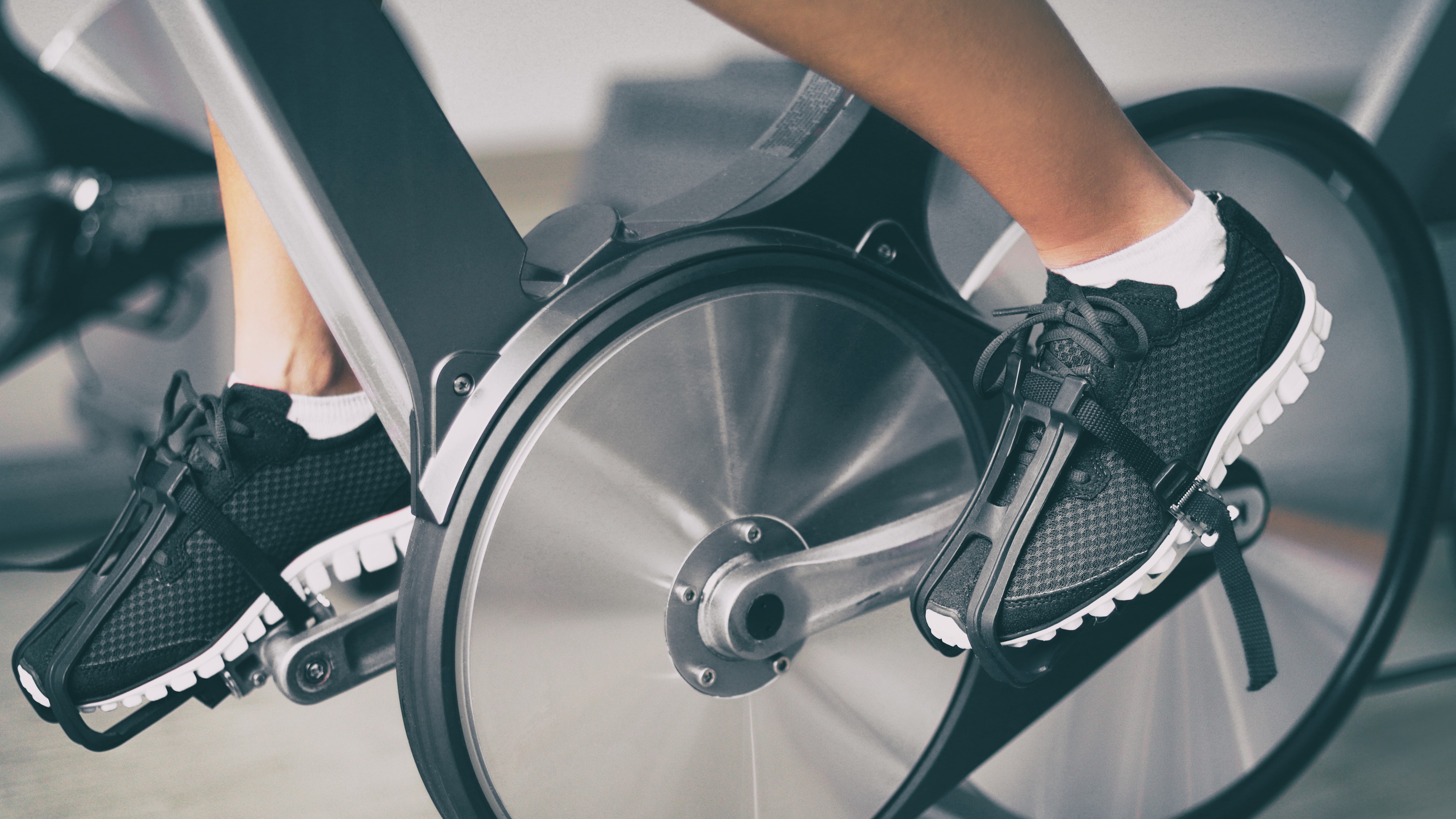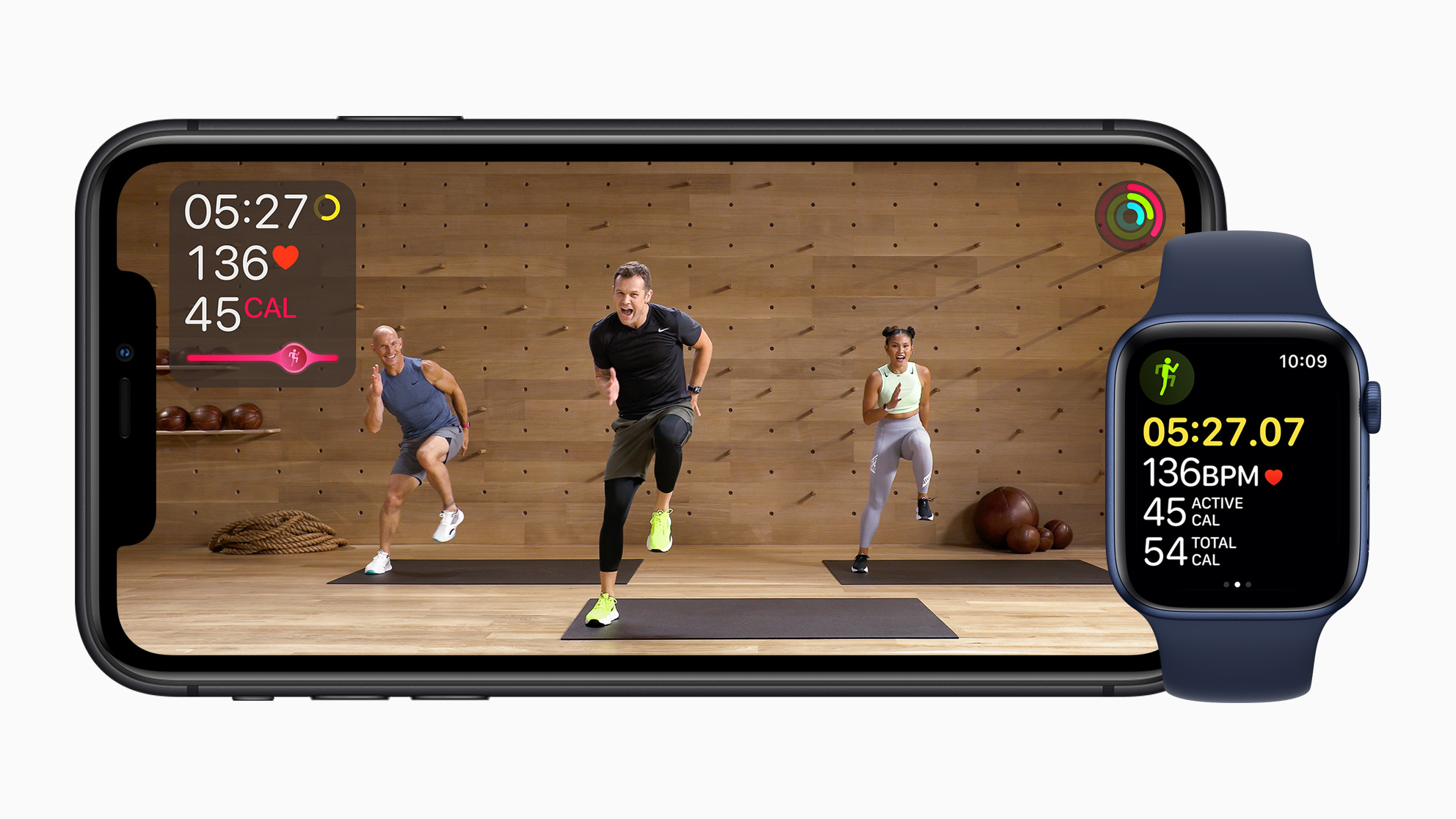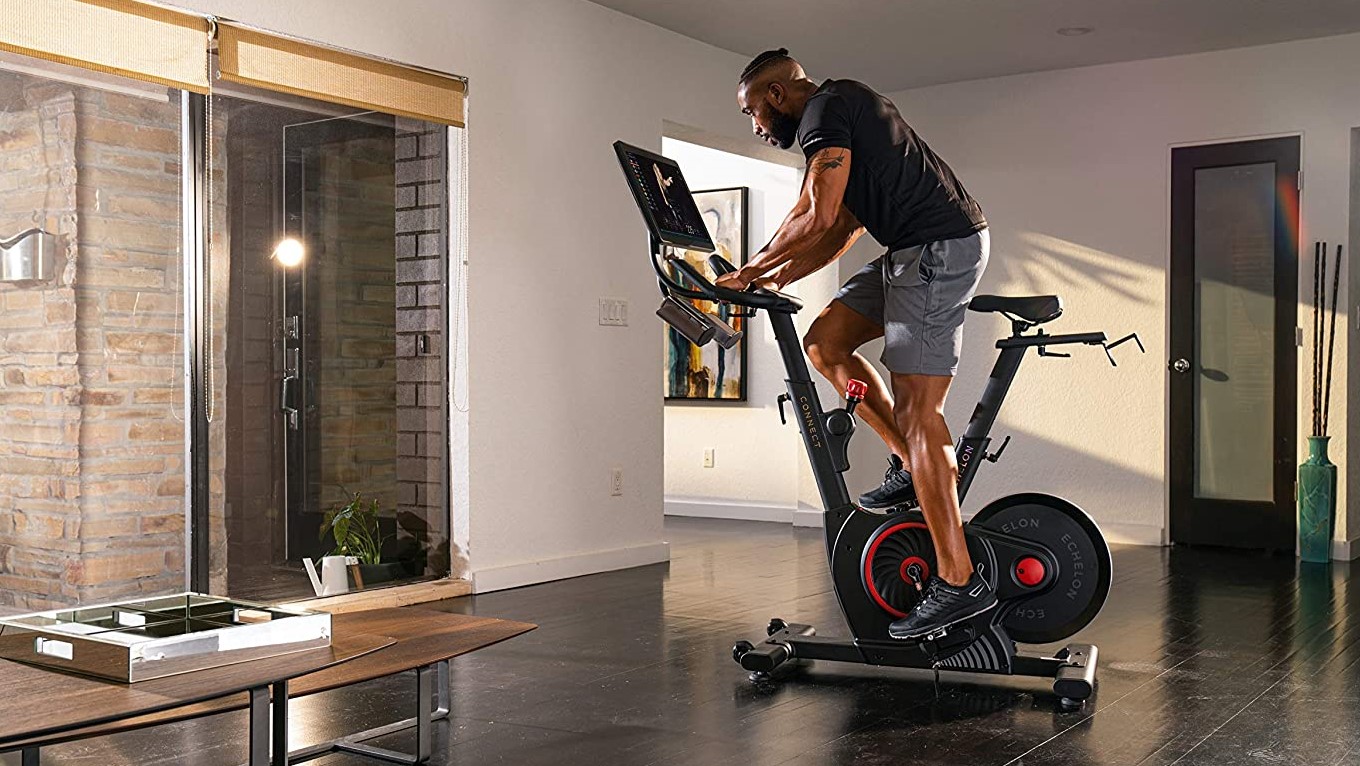The future of home workouts – where will you be sweating tomorrow?

Sign up for breaking news, reviews, opinion, top tech deals, and more.
You are now subscribed
Your newsletter sign-up was successful
The way we work out has changed. As gyms around the world began closing their doors earlier this year, treadmills flew off the shelves, fitness instructors became household names, and downloads of home exercise apps surged.
Although gyms in many countries are now re-opening their carefully sanitized doors, the biggest companies in tech are counting on sweating at home rather than a studio being part of the ‘new normal’ once we have a vaccine for Covid-19.
Samsung has been hard at work on its fitness app for smart TVs, Samsung Health, and at its September launch event, Apple announced a new subscription service, Apple Fitness Plus. This will allow you to tune into instructor-led workouts on your TV, phone or tablet, with heart rate data from your Apple Watch displayed on the screen in real time.
Peloton, best known for its live spin sessions, seized the opportunity to release both a new bike and a treadmill, and saw its share price steadily climb throughout the year (only levelling off after Apple’s big debut).

Meanwhile, Peloton's rival Echelon Fitness tightened its grasp on the more affordable end of the market – its indoor spin bikes starts at $839.98 / £839.98 (about AU$1,200), compared to $1,895 / £1,750 (about AU$2,600) for Peloton’s entry-level machine).
We spoke to Lou Lentine, CEO of Echelon, about the move from the gym to the living room, what it means for people working out at home, and where he thinks home fitness is likely to go next.
“With the shut downs of gyms and other fitness studios at the start of the pandemic, users took to at-home workouts to stay fit and keep with their regime,” Lentine told TechRadar. “In 2020 the industry is merging technology and fitness like never before. Advanced technology has allowed users to bring fitness into the comfort of their own home and made working out attainable.
Sign up for breaking news, reviews, opinion, top tech deals, and more.
“The connected fitness Echelon offers lets people work out when and where is best for them. Moreover, technology allows our members to connect all over the country. Our members have created social media groups to discuss classes and their journey with Echelon. We love that people have welcomed us into their homes and technology has allowed us to be a part of their journey!”
The next steps
So how does Lentine see us working out at home in the future? “Over the next 12 months I think we’re going to see more competitors coming into the marketplace and we welcome that,” he told us. “We think we have something special here.”
“We’re really focused on using technology and AI to better understand our members and create rides that they love. In the US and soon after in Europe we’re launching two treadmills. We’re launching a new bike at the end of the year designed by Eric Villency, who designed the SoulCycle and Peloton bikes.
“For our rower we hired two of the best rowing instructors that we could find. Our head of content has a background in MTV, Peloton and Flywheel, so he’s got some great understanding of creating amazing content for workouts on and off the rower. You’re getting a full body workout. It really will kick your butt.”

Echelon is also building a new studio in Europe that is due to open by the end of the year, plus a bigger studio in the US that’s scheduled to start streaming classes in 2021.
Lentine isn't concerned about any threat from Apple, noting that it shows how connected fitness is booming, and a rising tide lifts all ships – and that Apple’s proposition doesn’t yet include hardware.
“What we’re most excited for in the coming months is the launch of the Echelon Stride – an autofold smart treadmill and the newest addition to the brand’s current connected fitness portfolio,” he said.
"On the partnership and innovation side, we have also recently engaged in an exciting partnership with retail giant Dick’s Sporting Goods to offer our connected bikes, rowers, and fitness mirrors. Our products are available online and in all nearly 800 DSG brick-and-mortar stores. Additionally, we are re-stocking our best-selling Connect Sport Indoor Bike with Walmart in the next month."
Back in the saddle
On the topic of hardware, we also had to address the elephant in the room: Echelon’s short-lived Amazon Prime bike, which was swiftly pulled from Amazon’s virtual shelves after the retail giant took exception to its branding and denied a connection with it.
“Echelon connected with Amazon in early January at the CES show,” Lentine explained. “They were set to sell our entire line of Echelon connected products plus to develop a bike to meet a $500 price point. Even though all correspondence and the purchase orders call the bike the EX - Prime Bike, recently we learned that an internal Amazon team was not in full alignment.
“We are in the process of rebranding the equipment available on Amazon and look forward to our next iteration selling out quickly, just as the current model did. Across the board, we are hyper-focused on zeroing in on the best technology and AI to best understand our member base and create unique fitness experiences that speak to a variety of abilities, price points, and customers.”
A wider range of bikes at lower prices would certainly be a step in the right direction, opening up home studio classes to people who'd find the current offering prohibitively expensive.
Hopefully the rebranded bike helps fill that niche, and - along with services like Apple Fitness Plus, Samsung Health and the raft of others - makes it possible for more of us to choose where we work up a sweat, whether that's at a re-opened gym or our own homes.

Cat is TechRadar's Homes Editor specializing in kitchen appliances and smart home technology. She's been a tech journalist for 15 years, having worked on print magazines including PC Plus and PC Format, and is a Speciality Coffee Association (SCA) certified barista. Whether you want to invest in some smart lights or pick up a new espresso machine, she's the right person to help.